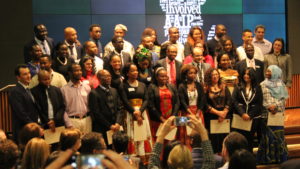 Immigrant communities often face the issue of not being able to obtain employment in their field or at a level commensurate with their experience and qualifications. There are systemic barriers to entry which mean that many people within these communities work in roles where they are significantly under-employed or unable to gain meaningful employment.
Immigrant communities often face the issue of not being able to obtain employment in their field or at a level commensurate with their experience and qualifications. There are systemic barriers to entry which mean that many people within these communities work in roles where they are significantly under-employed or unable to gain meaningful employment.
The Conversation’s piece on the challenges faced by the South Sudanese community in Australia’s Capital Territory once again highlights the barriers many African-Australians face when applying for work. The South Sudanese represent one of the most disadvantaged communities in Australia, with a high unemployment rate of 28.6 per cent, in comparison to the national unemployment rate which is 5.7 per cent.
The authors note a recent study of 72 members of the South Sudanese community living in the ACT, which found that despite many in the research group holding qualifications, none were able to gain employment in their chosen fields. The systemic barriers to employment include a level of inherent bias (both conscious and unconscious) in the overall recruitment process.
There is one constant response from both recruitment agencies and employers which provides a ready-made excuse for not considering the applicant – the applicant’s lack of Australian experience in the field being applied for. This, coupled with a lack of networks within the Australian business community, resulted in significant under-employment within the African-Australian community.
This aligns with Jesuit Social Services’ experience in delivering the African-Australian Inclusion Program (AAIP). AAIP is a joint initiative between Jesuit Social Services and the National Australia Bank (NAB). The need for the AAIP was identified by the African-Australian community, who noted that lack of local experience in the Australian business sector was a significant barrier to employment.
AAIP provides six months of paid, supported work experience at NAB in Melbourne and Sydney. The roles available include finance, IT, business administration, business analysis, corporate responsibility, project management, marketing and customer contact. Participants work with a coach to help them achieve broader careers goals, and to search for job opportunities outside the program.
Over 300 African-Australians have participated in the inclusion program since 2009. Of these, over 80 per cent have found work in NAB or beyond in their chosen field. Supporting people in their area of expertise is important, of course, for the individual, but also has value for the community and broader economy – simply because we don’t receive the full benefit from people’s skills unless they are applying them to their full potential. The experiences of AAIP participants powerfully demonstrate the life-changing impact of this approach:
“This opportunity at NAB is my passport for work. So many times I got knocked back because I didn’t have local experience and now I am finally getting that.”
“The AAIP restored my once lost confidence. It gave me a platform to explore my potential.”
As well as providing participants with opportunities to gain valuable work experience, AAIP carries multiple benefits for the host organisation. Indeed, the social change generated by programs like AAIP goes beyond just the participants, their families (both in Australia and Africa) and their communities – it also profoundly impacts the employees and organisational culture. Positive outcomes at NAB include increased employee engagement, development of people managers and their management of a diverse workforce, and practical facilitation of the organisational ‘inclusion’ and ‘diversity’ agendas.
A just society is built by the many and not the few. If we think of business as one of the most powerful forces on the planet, the many at NAB who have been affected may play a role in realigning society to be a little more just.
This post is written by Siann Nutting, Student on Placement at Jesuit Social Services.


